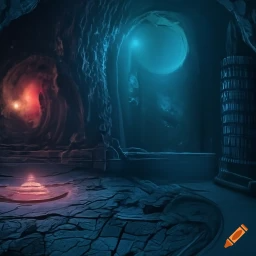I have a long, long list of complaints with D&D 5E’s spell list. Perhaps I will someday finish the entire alphabet, but it is more likely that my mind will crumble into dust before that particular project is ever completed. So let’s jump ahead and deal with one particularly troublesome spell: Detect Magic.
In 5E, Detect Magic is a 1st-level spell that can be cast as a ritual (which essentially means that it is free, as long as time isn’t of the essence). At higher levels, even the non-ritual version is pretty easy to deploy liberally, as full caster classes have an abundance of lower-level spell slots, which they rarely exhaust.
Put simply, Detect Magic is a spell that makes magic less magical. The unknown can trivially be flagged, categorized, and quantified. The status of a haunting hallway, mysterious monster, or nefarious NPC can often be quickly and easily diagnosed. Magic is decidedly mundane, ordinary, and known. (The spell Identify is also a problem for the same reasons, but at least has the dignity to restrict itself to one object per casting.)
I'll concede there is some logic to 5E's approach here. If every spell and magical item in the game follows the same taxonomic logic, players can understand how to interact with those effects. It supports the idea that the game’s schools of magic pervade everything magical within the world, and in running 5E, I have occasionally found that underlying taxonomy useful in interpreting my players’ proposed solutions to their problems.
But the spell incentivizes players to approach situations with a standard operating procedure. Much like Guidance – another problem spell, which is almost always correct to cast in any situation calling for an ability check, as long as action economy isn’t a factor – Detect Magic becomes the always-correct first step to evaluate an unknown situation. And that can be an easy way out of avoiding the more challenging process of manually engaging with the fiction.
I didn’t know how much this bothered me until players in my Knave game found magic items. The Knave rules also include a Detect Magic spell, but the game’s levelless approach to spells puts the opportunity cost of the spell on par with every other spell; and, of course, since magic in Knave is limited to spellbooks, players must physically obtain the spell, rather than selecting it during character creation or while leveling up. So a DM has the choice to simply not offer Detect Magic in a game where it would be disruptive.
The first truly magical object my players found in our Knave game was a glove that could invert hot and cold temperatures. If they could have cast Detect Magic and Identify on it, it would have been easy to tease out its exact mechanical function and limitations. But magic is magical in Knave because it is not easy to unpack logically. Its mechanics and functions are not obvious. So the PCs could only learn how it worked through trial and error.
That trial and error process, and the accompanying sense that PCs are tampering with the unknown, pushed the game closer to the Appendix N fiction that predated and influenced D&D and its descendants. And it’s a much more magical place to be.





No comments:
Post a Comment